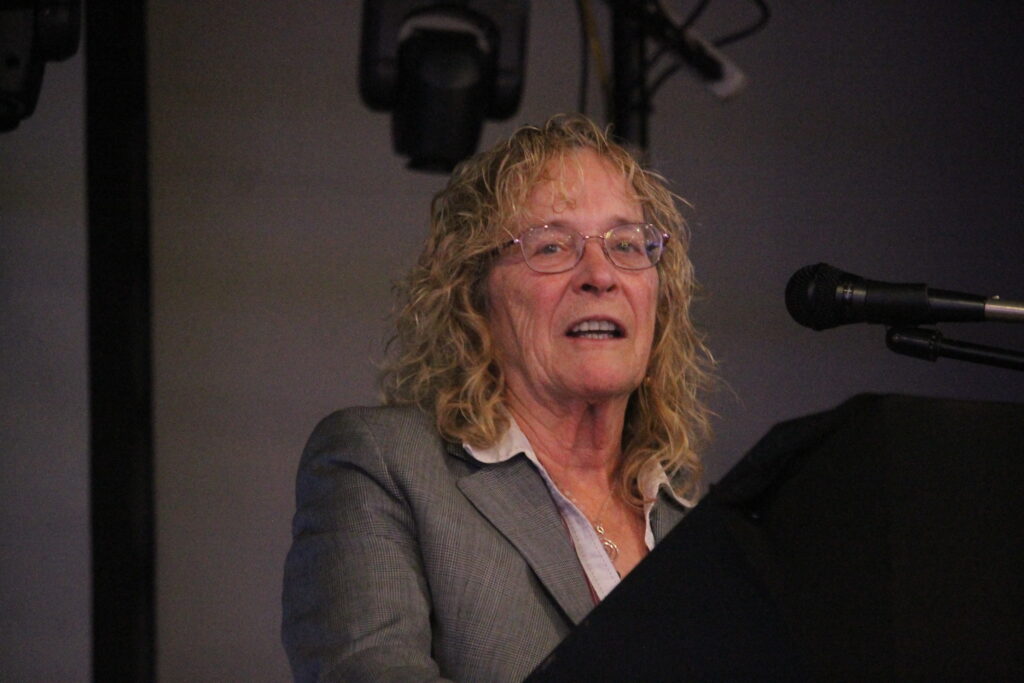The Most Significant 2019 Outcome: Somerset County
Listen to audio version of this article

For New Jersey Democratic Senate President Steve Sweeney and his political patron George Norcross III, Election Day 2019 was truly one they would like to forget.
Sweeney and Norcross are the leading members of a New Jersey political endangered species: Democrats who miss Chris Christie. In this campaign, they made an all-out effort to vanquish 1) Republican State Senate candidate Mike Testa, Jr. and his Assembly running mates in District 1; and 2) Assembly GOP candidates incumbent Ryan Peters and Jean Stanfield in District 8. They failed miserably, and now; they have no hope whatsoever of mounting a credible primary challenge to incumbent Democratic Governor Phil Murphy in 2021.
The day after the election, Murphy held a press conference at which he stated, citing local victories, “the party is stronger than before without question.” To that, Sweeney responded with a combination of sour grapes and bitterness, “Are you kidding me? How do you spin that? It wasn’t a good day. This is the first net loss in the Senate in a decade. You can spin it however you want. We lost. “
Supporters of Sweeney/Norcross in their current civil war with Murphy tend to deride the governor as an out-of-touch political dilettante, without political street smarts or grassroots instincts. In the context of this exchange of sentences, however, two words explain why Murphy proved to have the greater political sagacity: Somerset County.
The victory of Democratic challenger Melonie Marano over incumbent Republican freeholder Pat Walsh gave the Democrats control of the Somerset County Freeholder Board, the governing body of the County. Democratic control of the county was buttressed by the victory of their candidate, Darrin Russo in the race for County Sheriff.
In New Jersey, the party that controls the county governing body also controls the politics of the county. In the context of the 2021 gubernatorial race, control of the politics of Somerset County is of towering significance.
In order to have any chance of upsetting Murphy in 2021, the Republican candidate must amass a margin of at least 100,000 votes in the Northwest Five counties, to wit, Morris, Hunterdon, Sussex, Warren, and Somerset. Democratic control of the politics of Somerset County, including the powers of patronage, contracts, and grants, will create a major obstacle to the Republican gubernatorial candidate achieving the requisite majority he or she needs in Somerset.
The Democratic victory also strengthens the case for the Republican gubernatorial candidacy of Jack Ciattarelli. A former Somerset County freeholder and State Assemblyman, he has been the most popular Somerset County Republican over the past two decades. Electability is by far the most significant criterion for prospective Republican gubernatorial candidates, and Jack Ciattarelli is the only one who has any possibility of achieving the necessary GOP margin in Somerset.
The Somerset Democratic victories were a major tribute to the leadership and organizational skills of Somerset County Democratic Chair Peg Schaffer, who currently also serves as vice chair of the New Jersey Democratic State Committee. She is a solid ally of Phil Murphy, and this serves to significantly strengthen his reelection organizational base.
Sweeney’s effort to shift the blame for the First District loss from himself to Murphy is both pathetic and counterfactual. Murphy did not even campaign in the district.
To be sure, Republican message and media in that First District campaign were heavily focused against Murphy and his policies. But this district is among the most Trumpian and extreme right-wing legislative districts in the Northeastern United States. Murphy chose to not even campaign there. It was Sweeney whose prestige was on the line - and Sweeney lost.
While Sweeney and New Jersey print, television, and radio media have vastly ignored the significance of the Somerset County outcome, they have grossly overstated the impact of the state legislative results, which hardly were a rebuke to Phil Murphy. The GOP captured seats from the Democrats in the Senate and Assembly only in a most atypical District, the First. Indeed, for an off-year election, this is a most anemic result for the party not in control of the Governor’s office.
Perhaps the most palpably nonsensical comment I have heard regarding the election is that it was a repudiation of Murphy’s Millionaire’s Tax. A joint Rutgers-Eagleton/ Fairleigh Dickinson poll in April, 2019 found that over 70 percent of the public favored this measure. The Assembly election result which left the Democrats in control of 52 of 80 seats is hardly indicative of any change in the public view of this levy.
I oppose the Millionaire’s Tax as an economically toxic measure, hampering the formation and expansion of small businesses and resulting in such enterprises avoiding New Jersey. In no way, however, is the Millionaire’s Tax politically toxic. The only state level tax increases of political toxicity are broad based hikes in income or sales taxes, or the expansion of the sales tax to products not previously subject to it, such as the Democratic “toilet paper” tax of 1990. The Murphy administration has, except for a minimal sales tax increase, politically wisely avoided such broad-based tax hikes.
Murphy has emerged from Campaign 2019 with a stronger reelection prospect than before. The results in Somerset, for which the Murphys, Phil and Tammy worked hard, are perhaps the major factor in Phil Murphy’s enhanced Campaign 2021 outlook.
Alan J. Steinberg served as Regional Administrator of Region 2 EPA during the administration of former President George W. Bush and as Executive Director of the New Jersey Meadowlands Commission.





